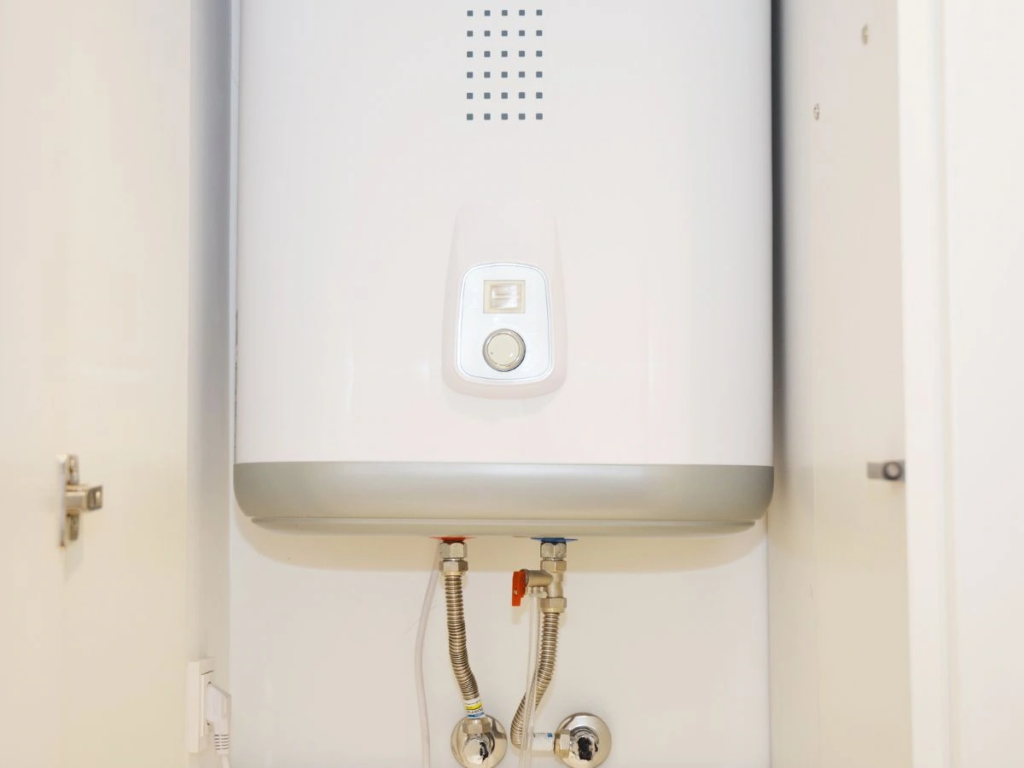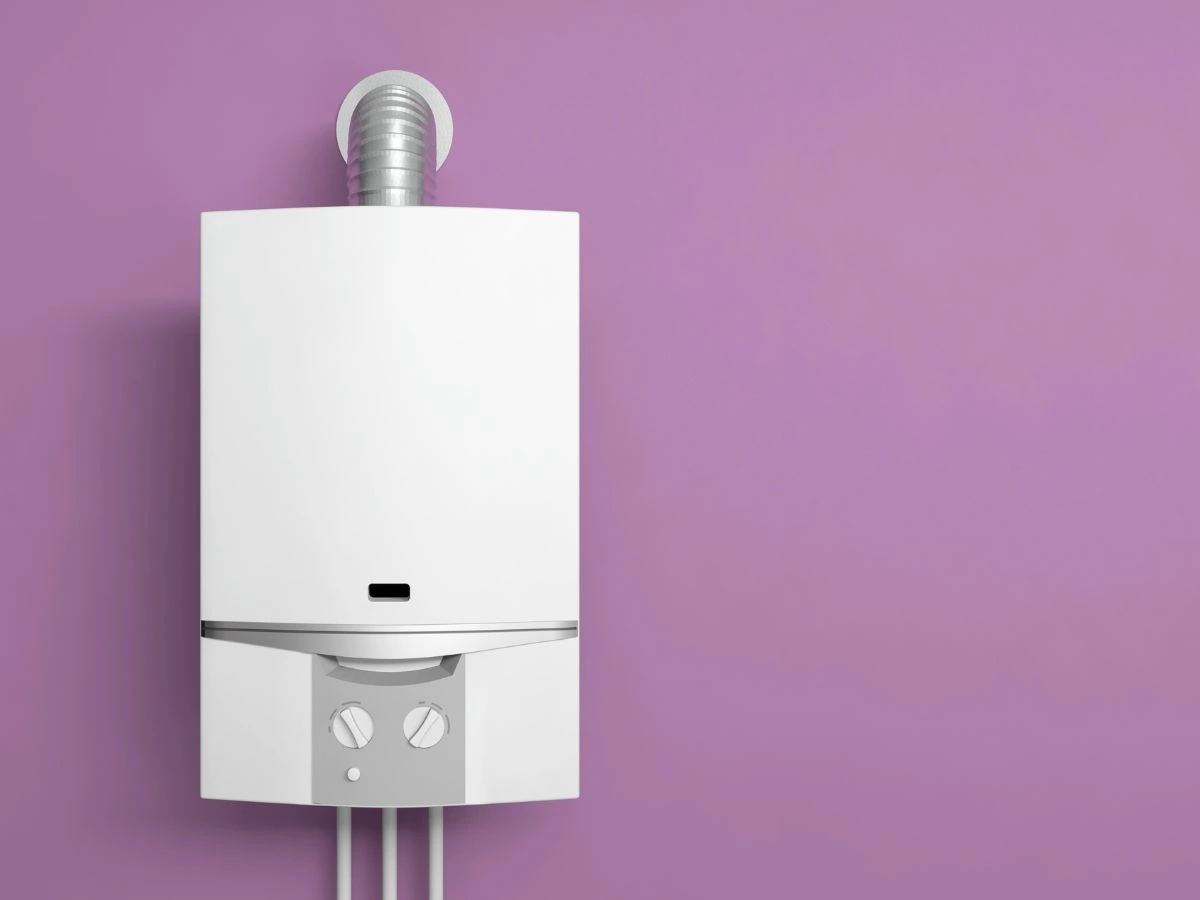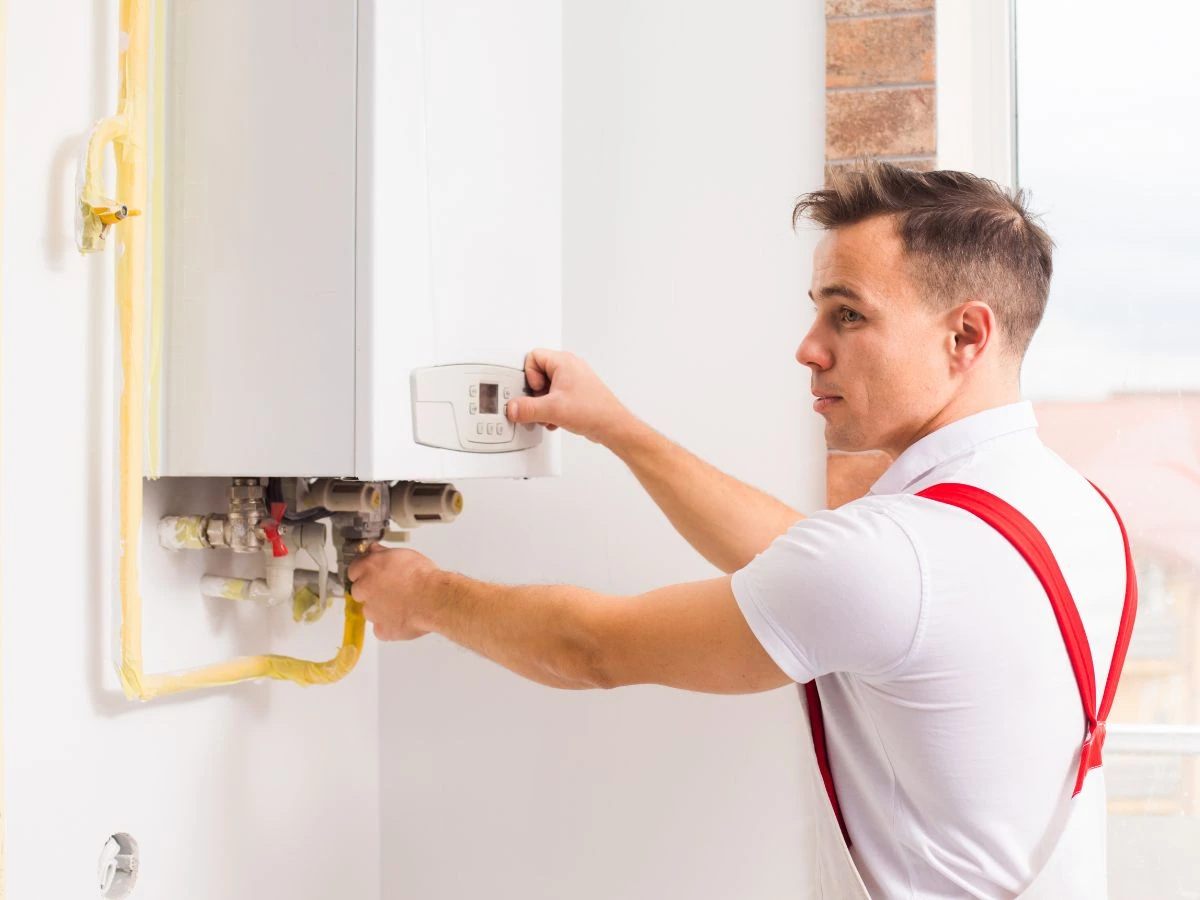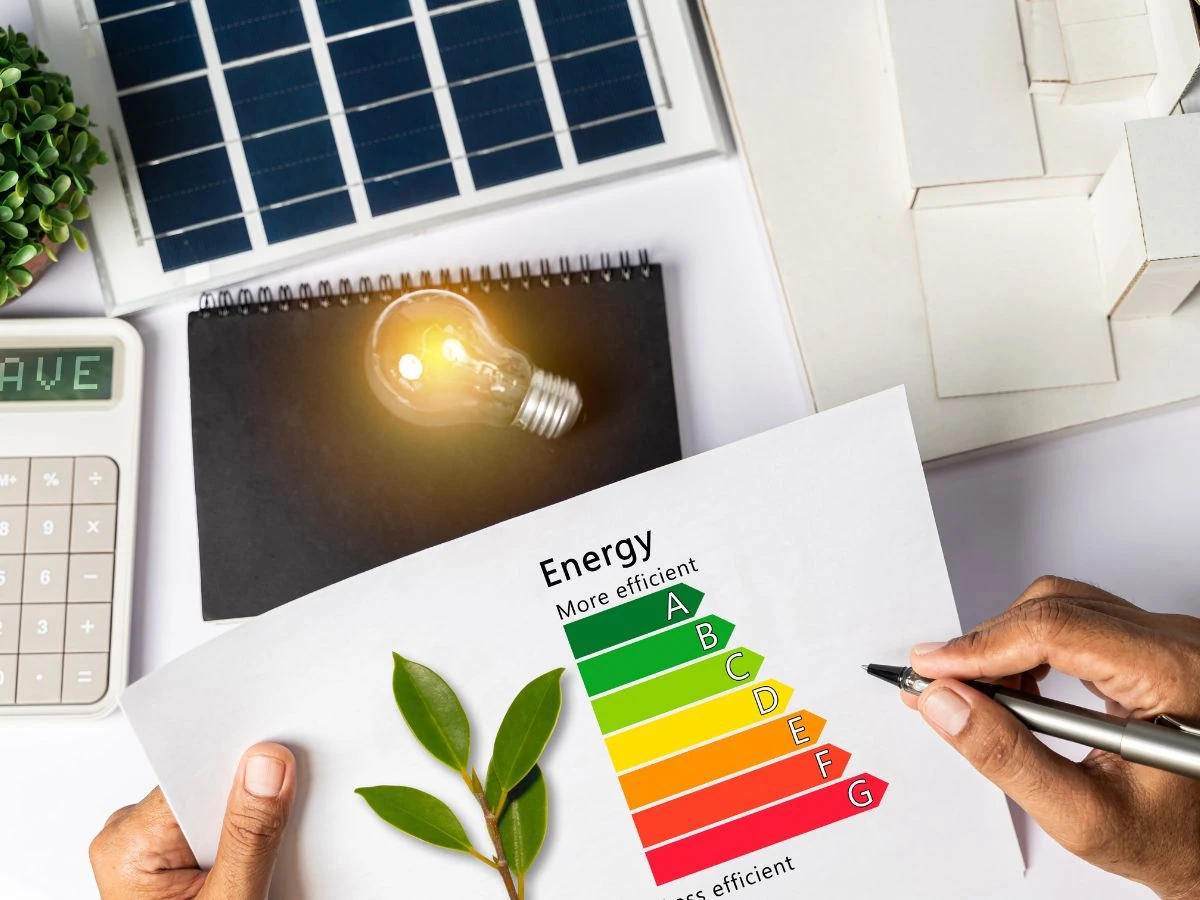Best Condensing Boilers: Which Is Best for Your Home? A Room-by-Room Breakdown
Choosing the right condensing boiler and understanding the price range can feel overwhelming. Walk into any heating showroom and you’ll face dozens of models, each promising to be the perfect fit for your home. The reality is simpler than manufacturers want you to believe. The best condensing boiler for your property depends on three key factors: how many rooms you need to heat, how much hot water you use, and where you can install it.
Condensing boilers differ from traditional boilers by operating at lower temperatures and using a condensing process that recovers heat from exhaust gases. This allows them to achieve much higher efficiency compared to non-condensing models, often due to features like a stainless steel heat exchanger .
Most UK homeowners can save between £200 and £400 annually by upgrading to a modern condensing boiler. These savings come from efficiency improvements that turn 90% of fuel into heat, compared to older models that waste 30-40% of energy up the chimney. Old non condensing boilers are significantly less efficient and produce higher carbon emissions, making them less environmentally friendly than modern condensing boilers. Beyond the financial benefits, investing in the most energy efficient boilers will reduce your carbon footprint and future-proof your home against rising energy costs. Having a condensing boiler installed by a professional ensures you benefit from energy efficiency, manufacturer guarantees, and reliable installation services.
This guide breaks down boiler choices by property type and room configuration. No technical jargon or sales pressure – just practical advice to help you make the right decision for your specific home. When choosing a condensing boiler suitable for your needs, consider factors like price, efficiency, and brand reputation to find the best fit for your household and budget.
Understanding Condensing Boilers and Why They Matter
What Makes a Condensing Boiler Different
A condensing boiler recovers heat that would normally escape through the flue. When hot gases cool down, they create water vapour that condenses back into liquid. This process releases extra heat, known as latent heat, that older boilers simply waste. Condensing boilers differ from non condensing boilers by capturing this latent heat from waste gases, significantly improving condensing boiler efficiency and reducing energy loss. Think of it like capturing steam from a kettle and using that energy to heat your home.
Modern gas boilers achieve efficiency ratings above 90%, while older models, such as a non condensing boiler typically installed before 2005, operate at only 60-70% efficiency. Non condensing boilers lose much of the heat generated through the flue pipe, resulting in lower efficiency and higher energy bills. This 20-30% improvement translates directly into lower fuel bills and reduced carbon emissions. A typical three-bedroom home can prevent around 1.5 tonnes of carbon dioxide from entering the atmosphere each year.
The heat recovery technology works through two heat exchangers instead of one. The primary heat exchanger handles the main heating process, while the secondary heat exchanger captures additional energy from the flue gases. The flue pipe vents waste gases produced during combustion, but in condensing boilers, heat is recovered from these waste gases before they exit, maximizing energy extraction from every unit of gas burned.
The Three Main Types Explained
Combi boilers provide instant hot water and central heating from a single compact unit. They heat water on demand, eliminating the need for a separate hot water cylinder or cold water storage tank. Most combi boilers are gas boilers, but oil boilers are also available for off-grid properties. This makes them ideal for smaller homes where space is limited and hot water demand is moderate.
System boilers work with a separate hot water cylinder but don’t require a cold water tank in the loft. They’re perfect for homes with multiple bathrooms or high hot water usage. The cylinder stores hot water, providing good pressure and flow rates even when multiple taps are running simultaneously.
Regular boilers, also called conventional or heat only boilers, require both a hot water cylinder and a cold water storage tank. They’re typically found in older properties with existing pipe work and storage systems. While they take up more space, they can provide excellent performance in larger homes with high heating demands.
When choosing a new boiler, it’s important to select the right boiler model for your needs, considering factors like efficiency, brand, and suitability for your home.
Matching Boiler Types to Your Home Size
Studio and One-Bedroom Properties
Combi boilers dominate the small property market for good reason. A studio flat or one-bedroom home typically needs 24-28kW of heating output, which most combi boilers can provide efficiently. The compact size means you can install them in a kitchen cupboard, under the stairs, or even in a small utility area. Upgrading to a new combi boiler is especially beneficial for compact living spaces, offering improved reliability, energy efficiency, and space-saving design.
Your hot water usage in a smaller property is generally predictable. One person showering, washing dishes, or running a washing machine – rarely all at once. This pattern suits combi boilers perfectly, as they can heat water instantly without maintaining a cylinder full of hot water that might go unused.
Installation costs typically range from £1,500 to £2,500, depending on the complexity of your existing system and any additional work required. Boiler prices can vary based on the model, features, and installation factors, so it’s important to get quotes to find the best option for your budget. Energy efficient combi boilers may have a higher upfront cost, but they can offer significant long-term savings on energy bills.
Popular models for smaller properties include the Worcester Bosch Greenstar 8000 Style and the Vaillant ecoTEC Plus. The Worcester Bosch Greenstar 8000 Style is a condensing combi boiler known for its efficiency. Both offer excellent efficiency ratings and compact dimensions that fit most cupboard installations.
Two to Three-Bedroom Homes
This property size presents the biggest choice challenge. Combi boilers work well if you have one main bathroom and moderate hot water usage. However, if you frequently run multiple taps simultaneously or have two bathrooms, a system boiler with a cylinder might serve you better. Whichever type you choose, selecting an energy efficient boiler is crucial to maximize savings on energy bills and reduce environmental impact.
For combi boiler installations, look for boiler models in the 28-35kW range. This provides enough heating power for 8-12 radiators while maintaining decent hot water flow rates. There are various condensing boiler models available to suit different home sizes and hot water needs. The key consideration is your hot water usage pattern. If family members shower consecutively rather than simultaneously, a combi boiler will cope admirably.
System boilers become attractive when you need reliable hot water pressure upstairs or want to run multiple hot water outlets simultaneously. A 150-200 litre cylinder provides enough storage for most families, with the boiler maintaining the temperature automatically.
Installation costs range from £2,000 to £3,500, with system boilers typically costing more due to the additional cylinder and associated pipe work. However, many homeowners find the improved hot water performance worth the extra investment.
Four-Bedroom and Larger Properties
Larger homes almost always benefit from system or regular boilers. The heating demand alone often exceeds 35kW, requiring high-output models that work more efficiently when paired with a hot water cylinder. For large properties, efficient boilers such as modern condensing or high-efficiency models can significantly reduce fuel consumption and lower energy bills, while also meeting environmental regulations. Multiple bathrooms, en-suites, and utility rooms create hot water demands that stretch combi boilers beyond their optimal performance range.
System boilers in the 35-42kW range can handle substantial heating loads while maintaining cylinder temperatures effectively. Both gas and oil boilers are available for larger homes, depending on fuel availability and infrastructure. Regular boilers offer even more flexibility, particularly in older properties with existing tank systems. The additional storage capacity means multiple family members can shower without affecting water temperature or pressure.
Larger properties often have more complex heating zones, with different areas requiring different temperatures at different times. System and regular boilers integrate better with sophisticated heating controls, allowing you to heat bedrooms differently from living areas or turn off heating to unused rooms.
Premium installation costs typically range from £3,000 to £5,000, reflecting the additional components and labour involved. However, the long-term performance and efficiency benefits usually justify the higher upfront investment. When selecting a boiler, it is important to choose reputable boiler manufacturers to ensure reliability, efficiency, and strong aftercare support for your home.
Room-by-Room Heating Requirements
Kitchen and Living Areas
Kitchens and living rooms represent the highest-demand zones in most homes. These areas need consistent heating throughout the day and often require the most hot water for cooking, cleaning, and washing up. The boiler location often influences kitchen design, particularly with combi boilers that need to be positioned relatively close to the main hot water outlets.
Open-plan living spaces present unique challenges. A single large area might need multiple radiators to ensure even heat distribution, but the overall heating demand could be lower than several separate rooms. Consider how you use the space – a kitchen-diner used constantly needs different heating patterns than a formal dining room used occasionally.
Hot water demand in kitchens is typically immediate and frequent. Filling sinks, running dishwashers, and general cleaning create regular but short-duration demands that combi boilers handle well. However, if you frequently run hot water in the kitchen while someone showers upstairs, a system boiler provides better performance.
Bedrooms and Quiet Zones
Bedrooms require gentler heating profiles than living areas. Most people prefer cooler sleeping temperatures, making programmable thermostatic radiator valves particularly valuable. These allow you to set different temperatures for different rooms, reducing energy consumption while maintaining comfort.
Noise levels become critical in sleeping areas. Modern condensing boilers operate much quieter than older models, but the location and mounting still matter. Wall-mounted boilers can transmit vibrations through the building structure, potentially disturbing sleep in adjacent rooms.
Consider the heating patterns in bedrooms. Children’s rooms might need warming before bedtime, while adult bedrooms often need minimal heating overnight. Smart heating controls can optimise these patterns automatically, reducing energy consumption without sacrificing comfort.
Bathrooms and Wet Rooms
Bathrooms have the highest hot water demands and the most critical pressure requirements. Poor shower performance is often the main complaint that drives boiler upgrades. Combi boilers need adequate gas supply and water pressure to deliver satisfying shower experiences, particularly in upstairs bathrooms. Choosing an A-rated boiler or A-rated boilers ensures maximum efficiency and performance, as these models are highly efficient (typically over 90%) and are the top category for energy performance under the ERP rating system.
Towel rails and heated bathroom floors add to the heating load but improve comfort significantly. These systems work well with all boiler types but require proper sizing to ensure adequate heat output. Underfloor heating in bathrooms often needs separate controls to maintain consistent temperatures.
Ventilation in bathrooms affects heating efficiency. Proper extraction fans reduce moisture buildup that can interfere with condensing boiler operation. Some homeowners install heated towel rails with electric elements to provide warmth when the central heating is off during summer months.
Practical Considerations for UK Homes
Installation Space and Location
Finding suitable installation space often determines boiler choice more than heating requirements. Combi boilers need less space but require specific clearances for servicing and safety. Kitchen cupboards work well if they provide adequate ventilation and access for annual maintenance. Professional condensing boiler installations offer significant benefits, ensuring both safety and optimal efficiency by following best practices and manufacturer guidelines.
Flue requirements vary by boiler type and location. Horizontal flues work well for wall-mounted installations, while vertical flues suit loft-mounted boilers. The flue route affects installation complexity and cost, particularly in terraced houses where neighbours might object to flue positioning.
External boiler mounting is becoming more popular, particularly for system boilers where the cylinder remains indoors. Outdoor installations free up valuable indoor space but require weatherproof housings and freeze protection. Modern boilers handle UK weather conditions well with proper installation.
Noise Levels and Neighbour Considerations
Boiler noise affects both your comfort and neighbour relationships. Modern condensing boilers operate at 40-50 decibels, similar to a quiet conversation. However, mounting location and method can amplify these sounds through building structures.
External installations need careful positioning to avoid disturbing neighbours. Many local authorities have guidelines about boiler flue positions relative to windows, doors, and boundary walls. Some areas have specific noise restrictions that affect installation options.
Internal installations in flats or terraced houses require consideration of party walls and shared spaces. Vibration-dampening mounts and careful pipe routing can minimise noise transmission. Some homeowners choose system boilers partly because the cylinder provides a buffer that reduces pump cycling noise.
Running Costs and Efficiency
Annual running costs depend on boiler efficiency, fuel prices, and your usage patterns. A typical three-bedroom home spends £800-1,200 annually on heating and hot water. Upgrading from a 70% efficient boiler to a 90% efficient model can save £200-400 per year at current gas prices. Boiler prices and condensing boiler prices can vary widely depending on the model, brand, features, and installation requirements, so it’s important to obtain quotes to find the best option for your budget and needs.
Maintenance costs vary significantly between boiler types and manufacturers. Annual servicing typically costs £80-120, with additional costs for repairs and component replacements. Some manufacturers offer extended warranties that include annual servicing, providing cost certainty for several years.
Smart heating controls can reduce running costs by 10-20% through better temperature management and scheduling. These systems learn your patterns and optimise heating delivery, reducing energy waste without sacrificing comfort. Many new boilers include smart controls as standard or optional extras.
Best Condensing Boiler Brands
When it comes to condensing boilers, the brand you choose can make a significant difference in both performance and long-term reliability. With so many of the best boiler brands on the market, narrowing down your options to the best condensing boiler for your home can feel daunting. However, focusing on brands with a proven track record for energy efficiency, innovation, and customer satisfaction will help you make a confident choice. The best condensing boiler brands combine advanced condensing technology with robust aftercare, ensuring your investment delivers lower heating bills and a reduced carbon footprint for years to come.
Top-Rated Brands for UK Homes
Several condensing boiler brands consistently stand out in the UK for their quality, reliability, and energy efficiency. Worcester Bosch is widely regarded as a leading boiler brand, trusted by both homeowners and heating engineers for its dependable performance and innovative features. Their condensing boilers are designed to maximise efficiency, helping you save on energy bills while keeping your home comfortable.
Vaillant is another top contender, known for its German engineering and commitment to sustainability. Vaillant condensing boilers are praised for their quiet operation, user-friendly controls, and excellent energy efficiency ratings. Ideal is also a popular choice, offering a range of condensing boilers that balance affordability with solid performance and reliability.
These brands have built their reputations on delivering high-quality condensing boilers that meet the diverse needs of UK homes. Whether you’re looking for a compact combi boiler for a flat or a powerful system boiler for a larger property, choosing a trusted brand like Worcester Bosch, Vaillant, or Ideal ensures you benefit from the latest advancements in condensing technology and energy efficiency.
What to Look for in a Reliable Brand
Selecting the right condensing boiler brand goes beyond just picking a familiar name. Start by prioritising energy efficiency—look for condensing boilers with high efficiency ratings, ideally those carrying an A-rated energy efficiency certificate. These models are designed to extract the maximum heat from every unit of fuel, helping you lower your heating bills and shrink your carbon footprint.
A reliable boiler brand should offer a wide range of models to suit different property sizes and hot water demands. This flexibility ensures you can find the best condensing boiler for your specific needs, whether you live in a compact flat or a spacious family home. Comprehensive warranties and responsive customer support are also essential brands that stand behind their products with long guarantees and a strong network of service engineers provide extra peace of mind.
Look for condensing boilers equipped with features that enhance efficiency and comfort, such as thermostatic radiator valves and smart controls. These allow you to fine-tune your central heating system, reducing energy waste and improving overall performance. Brands like Worcester Bosch and Vaillant are known for investing in research and development, regularly introducing innovative solutions that keep pace with changing homeowner needs and environmental standards.
Ultimately, the best condensing boiler brand for your home will align with your priorities—whether that’s cutting-edge technology, proven reliability, or outstanding aftercare. By comparing condensing boiler brands on factors like energy efficiency, warranty coverage, and available features, you can make an informed decision that delivers comfort, savings, and sustainability for years to come.
Long-Term Benefits and Savings
Energy Efficiency and Bill Reduction
The efficiency improvements from modern condensing boilers compound over time. Choosing energy efficient and efficient boilers is crucial to maximize savings and reduce energy consumption. A 20% efficiency gain saves money every month for the 15-20 year lifespan of the boiler. For a home spending £1,000 annually on heating, this represents £3,000-4,000 in savings over the boiler’s lifetime. Choosing energy efficient boilers is a key factor in lowering carbon emissions and minimizing environmental impact.
Upgrading to a new boiler can significantly improve efficiency and lower your energy bills. Payback periods for boiler upgrades typically range from 5-8 years, depending on the age and efficiency of your existing system. Homes with very old boilers see faster payback, while relatively recent installations might take longer to justify replacement costs.
Smart thermostat integration amplifies these savings. Learning algorithms optimise heating patterns, while smartphone apps let you adjust temperatures remotely. Many homeowners discover they can maintain comfort while using 15-20% less energy simply through better control and scheduling.
Environmental Impact
Condensing boilers significantly reduce carbon emissions compared to older models. Upgrading from traditional gas and oil non condensing boilers to modern condensing models offers substantial environmental benefits, including lower fuel consumption and reduced emissions. A typical home upgrade prevents 1-2 tonnes of carbon dioxide emissions annually, but it’s also important to consider issues like a frozen condensate pipe. Reducing carbon emissions is a key goal of energy efficient heating systems. These environmental benefits increase as the UK electricity grid becomes cleaner.
The efficiency improvements contribute directly to UK net-zero targets. The government expects domestic heating improvements to provide substantial emissions reductions over the next decade. Early adopters of high-efficiency boilers are already contributing to these national goals.
Future-proofing considerations include compatibility with renewable energy systems. Many modern boilers can work alongside solar thermal systems or heat pumps in hybrid configurations. This flexibility protects your investment as heating technology continues evolving.
Government Incentives and Support
The Boiler Upgrade Scheme provides grants up to £5,000 for qualifying heat pump installations, though condensing boilers aren’t directly covered. However, VAT reductions to 5% apply to boiler replacements in homes over 60 years old, providing modest savings on installation costs.
Local authorities in the North East sometimes offer additional support through energy efficiency programmes. Newcastle, Sunderland, and Durham councils have periodic schemes targeting fuel poverty and carbon reduction. These programmes often include boiler upgrades alongside insulation and other improvements.
Energy company obligations require major suppliers to fund efficiency improvements in qualifying homes. While not guaranteed, these programmes can provide significant financial support for boiler upgrades, particularly for households meeting specific criteria.
Common Challenges and Solutions
Installation disruption worries many homeowners, but most jobs complete within 1-2 days. The key is choosing experienced installers who explain the process clearly and protect your home during work. Many companies offer temporary heating solutions if installation extends beyond one day.
Unexpected costs often arise from hidden pipe work issues or building regulation requirements. Reputable installers survey your property thoroughly before providing quotes, identifying potential complications early. Always request detailed quotes that include potential additional work.
Maintenance experiences vary significantly between manufacturers and installers. Homeowners consistently report better experiences with companies that offer comprehensive aftercare services. Choosing reputable boiler manufacturers, such as Worcester Bosch, Vaillant, or Baxi, ensures access to reliable aftercare support and efficient servicing, often recommended by the energy saving trust . Annual servicing contracts provide peace of mind and often include priority breakdown response.
Conclusion
Choosing the right condensing boiler and heating system depends on your specific property size, hot water usage patterns, and installation constraints rather than following generic recommendations. Small properties typically benefit from combi boilers, while larger homes need system or regular boilers to maintain performance and efficiency.
The room-by-room approach reveals that kitchen and bathroom demands often drive boiler selection more than bedroom heating requirements. Consider your family’s hot water usage patterns carefully – simultaneous usage favours system boilers, while sequential usage suits combi boilers perfectly.
Professional assessment remains essential for optimal results. A qualified heating engineer can evaluate your specific requirements, existing pipe work, and installation options to recommend the most suitable system. Don’t base major decisions on internet research alone – get expert advice on the size condensing boiler tailored to your property.
Ready to transform your home heating and slash your energy bills? Premier Gas is your trusted local specialist for boiler servicing in Newcastle, offering reliable, professional care to keep your home warm and safe all year round. Our Gas Safe registered engineers don’t just install boilers – we create comfort systems tailored to your lifestyle. Get your free, no-obligation assessment today and discover why thousands of homeowners trust Premier Gas for their heating needs.




